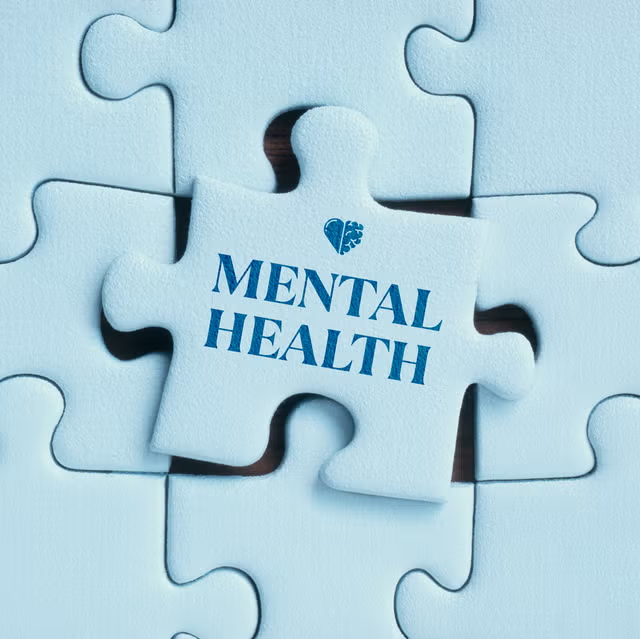Mental health and relationships are deeply intertwined, with each significantly influencing the other. Healthy relationships can provide emotional support, reduce stress, and enhance well-being, while poor mental health can strain relationships, leading to misunderstandings, conflict, and even disconnection. Building and maintaining strong, healthy connections requires an understanding of the interplay between mental health and relationships, along with a commitment to nurturing both.
The Connection Between Mental Health and Relationships
Relationships play a crucial role in mental health. Supportive relationships can act as a buffer against stress, anxiety, and depression, while toxic or strained relationships can exacerbate mental health issues. The quality of our relationships affects how we feel about ourselves and the world around us, influencing our overall mental health.
Positive Relationships:
These are characterized by mutual respect, trust, and open communication. Positive relationships can boost self-esteem, foster a sense of belonging, and provide a safe space for expressing emotions. They also offer support during difficult times, which can be crucial for mental health.
Negative Relationships:
In contrast, negative relationships can drain emotional energy, increase stress levels, and contribute to mental health issues. Relationships that involve constant criticism, control, or lack of support can lead to feelings of worthlessness, anxiety, and depression.
Tip:
Regularly assess the quality of your relationships. Identify and nurture the positive connections in your life, while addressing or distancing yourself from relationships that negatively impact your mental health.
The Impact of Mental Health on Relationships
Mental health issues can create challenges in relationships, often leading to misunderstandings and conflicts. For example:
Anxiety:
Individuals with anxiety may struggle with constant worry and fear, which can lead to overthinking and excessive reassurance-seeking in relationships. This can strain the relationship, especially if the partner feels overwhelmed or unsure of how to provide the needed support.
Depression:
Depression can cause withdrawal, lack of interest in activities, and difficulty communicating. A person struggling with depression might feel unworthy of love or support, leading to isolation and tension within relationships.
Bipolar Disorder:
Mood swings associated with bipolar disorder can be difficult for both the individual and their partner to manage. The unpredictability of emotions can lead to misunderstandings and conflict, making it challenging to maintain a stable relationship.
Tip:
If you or your partner is struggling with mental health issues, open communication is key. Discuss how the condition affects the relationship and work together to find ways to support each other. Seeking professional help, such as couples therapy, can also be beneficial.
Building Stronger Connections
To build stronger connections that support mental health, it’s essential to cultivate healthy relationship habits. Here are some strategies:
Practice Open Communication:
Communication is the foundation of any healthy relationship. Being able to express thoughts, feelings, and needs openly and honestly creates a space for understanding and connection. It’s important to listen actively and empathetically to your partner or loved ones.
Tip:
Set aside regular time for open conversations without distractions. Use “I” statements to express your feelings without blaming the other person (e.g., “I feel stressed when…”).
Establish Boundaries:
Healthy relationships require boundaries that respect each person’s individuality and needs. Boundaries help prevent resentment and ensure that both parties feel comfortable and secure in the relationship.
Tip:
Discuss and agree on boundaries with your partner or loved ones. Respect each other’s limits and be willing to adjust boundaries as the relationship evolves.
Show Appreciation and Gratitude:
Expressing appreciation and gratitude can strengthen relationships by reinforcing positive feelings and fostering a sense of connection. Simple acts of kindness, such as saying “thank you” or acknowledging the efforts of your partner or loved ones, can go a long way.
Tip:
Make it a habit to regularly express gratitude for the small things your partner or loved ones do. This helps maintain a positive atmosphere in the relationship.
Prioritize Quality Time:
Spending quality time together is essential for building and maintaining strong relationships. Whether it’s engaging in shared activities, having meaningful conversations, or simply enjoying each other’s company, quality time helps deepen the bond.
Tip:
Schedule regular time together, even if life is busy. Prioritizing your relationship shows that you value it and are committed to maintaining it.
Support Each Other’s Mental Health:
Supporting each other’s mental health involves being aware of each other’s needs and offering help when needed. This might include encouraging your partner or loved one to seek professional help, being a listening ear, or helping them manage stress.
Tip:
Educate yourself about mental health and how it can affect relationships. Be patient and understanding, and avoid stigmatizing or dismissing mental health issues.
Navigating Relationship Challenges
All relationships face challenges, but how these challenges are handled can determine the health and longevity of the connection. Here’s how to navigate some common issues:
Conflict Resolution:
Conflict is a natural part of any relationship, but it’s important to approach disagreements constructively. Avoiding conflict or allowing it to escalate can harm the relationship.
Tip:
Address conflicts calmly and respectfully. Focus on the issue at hand rather than bringing up past grievances. Seek to understand the other person’s perspective and work together to find a resolution.
Managing Stress:
External stressors, such as work pressure or financial difficulties, can put a strain on relationships. It’s essential to manage stress effectively to prevent it from negatively impacting the relationship.
Tip:
Practice stress management techniques such as mindfulness, exercise, and relaxation. Discuss stressors openly with your partner or loved ones and find ways to support each other.
Dealing with Life Changes
Life changes, such as moving, having children, or changes in career, can significantly impact relationships. These changes may bring about new challenges and require adjustments in the relationship.
Tip:
Approach life changes as a team. Discuss how the changes will affect the relationship and plan together for how to navigate them. Flexibility and mutual support are key.
The Role of Professional Help
Sometimes, relationships need external support to overcome challenges. Couples therapy, family therapy, or individual counseling can provide valuable tools for improving communication, resolving conflicts, and strengthening connections. A mental health professional can offer guidance tailored to the specific needs of the relationship.
Tip:
If you’re struggling to maintain a healthy relationship, consider seeking professional help early on. Therapy can help prevent issues from escalating and provide a neutral space for both parties to express themselves.
Conclusion
Mental health and relationships are closely connected, and nurturing both is essential for overall well-being. By practicing open communication, establishing boundaries, showing appreciation, prioritizing quality time, and supporting each other’s mental health, individuals can build stronger, healthier connections. Navigating challenges with patience and understanding, and seeking professional help when needed, can further strengthen relationships. Ultimately, healthy relationships contribute to better mental health, creating a positive cycle of support and connection that enriches life.

